Articles
Latest articles from the gaming world

Valentine’s Day games for couples – top 10 picks
Valentine’s Day on February 14 is just around the corner. Instead of the usual dinner-and-movie routine, playing a couple's game together can be a fun, relaxed way to connect, laugh and spend quality time. Below you’ll find a handpicked list of games that work especially well for two players – from light card games to deeper, more intimate experiences.

FAQ: How many cards are in a deck and which?
A standard deck of playing cards is the foundation of most classic **card games**. While many games use the same basic deck, the exact number of cards and which cards are included can sometimes vary depending on rules and regional preferences. Below is a clear breakdown of what’s inside a regular deck of cards.

Easy card games for 2 – Quick and easiest two-player classics
Looking for easy card games for two (2) players that are quick to learn and simple to play? Whether you’re sitting down with a friend, partner, or family member, these games are among the easiest options using a standard deck of cards. They are perfect for short sessions, relaxed game nights, or anyone who wants to get started without reading long rulebooks. Below you’ll find a clear overview, followed by short explanations of some of the most popular and easiest card games for two.

Simple card games: A beginner-friendly guide to easy and fun classics
Card games have been around for centuries, and many of the most popular ones are also the simplest to learn. Simple card games are perfect for families, casual players, and anyone who wants quick entertainment without memorizing complex rules or strategies.
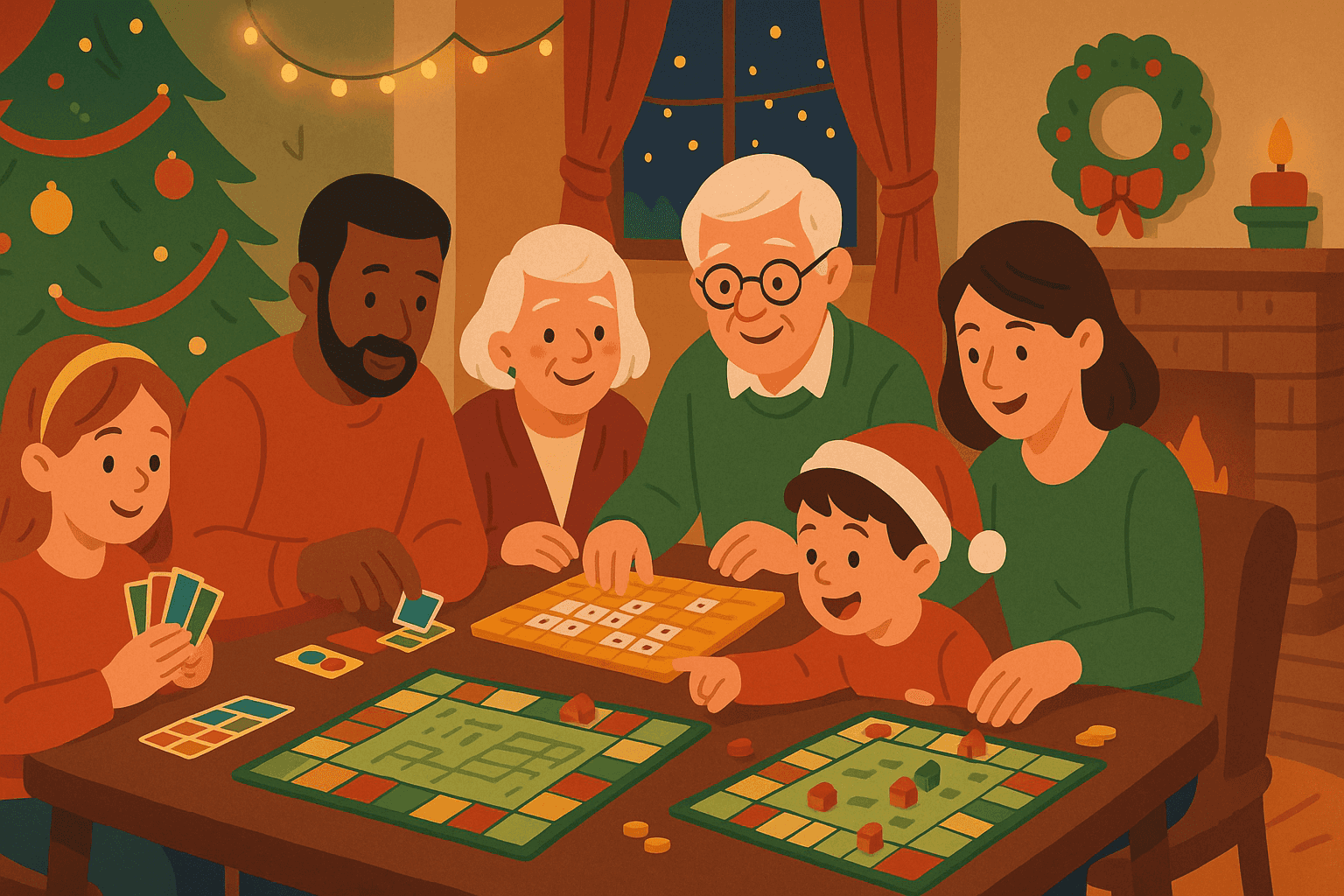
Top 10 Best Christmas Games to Play with Your Family
Christmas is the perfect excuse to slow down, gather everyone in one place and actually do something *together* – beyond scrolling on separate screens. A couple of well-chosen games can turn a regular evening into one of those cosy memories you talk about for years: grandpa arguing over Monopoly trades, cousins whispering clues in Codenames, kids proudly spelling out words in Alphapet. In this guide, we’ve picked ten Christmas-friendly games that work for real families – mixed ages, different energy levels and limited patience for rulebooks. Whether you want a big party game, a calm word game or a long board game session that stretches through the afternoon, you’ll find something here to bring out on Christmas Eve, Christmas Day or any winter night you’re all together.
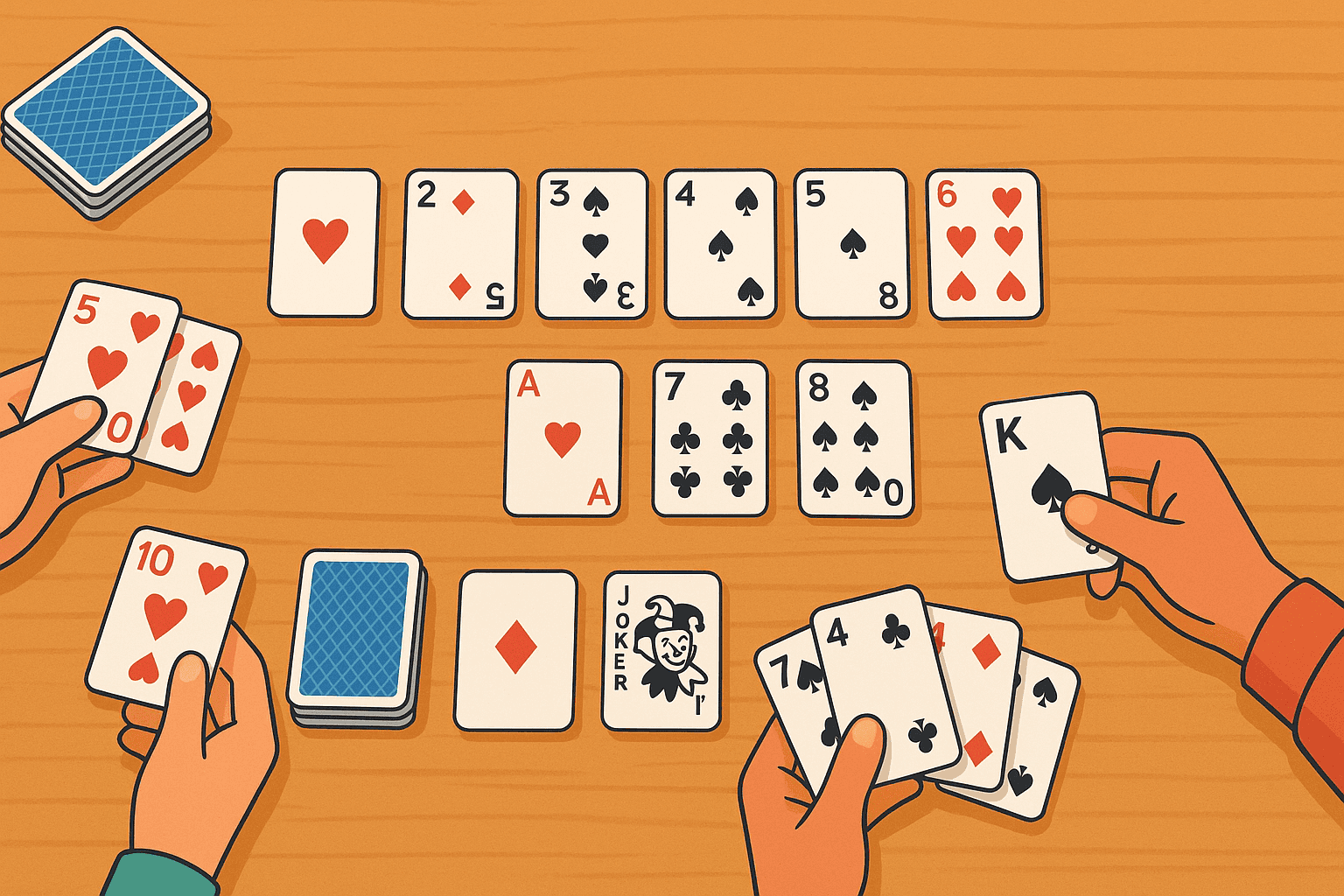
How to Play Skip-Bo with Regular Cards (Using a Standard Deck)
Skip-Bo is designed to be played with its own special deck – but what if you don’t have it handy? Maybe you’re travelling, visiting family, or your original Skip-Bo cards have gone missing. The good news: you can absolutely approximate Skip-Bo with one or more standard decks of playing cards, as long as you agree on a simple mapping and a few house rules. This guide walks you through a clear, playable variant: how to play Skip-Bo with regular cards (also searched as “Skip-Bo with a normal deck” or “Skip-Bo with a standard deck”). It’s not an official version of the game, but it’s close enough to scratch the same itch.

Best Games for Couples
This guide gathers some of the best games for couples – from classic board games and quick card games to party, drinking and conversation games for date nights and double dates.

How to Play Uno with a Regular Deck of Cards
No Uno deck? No problem. You can mirror the feel of **Uno** with a standard 52-card pack (optionally add two jokers). This guide covers card mapping, setup, turn flow, action effects, scoring, and house rules so you can start in minutes.
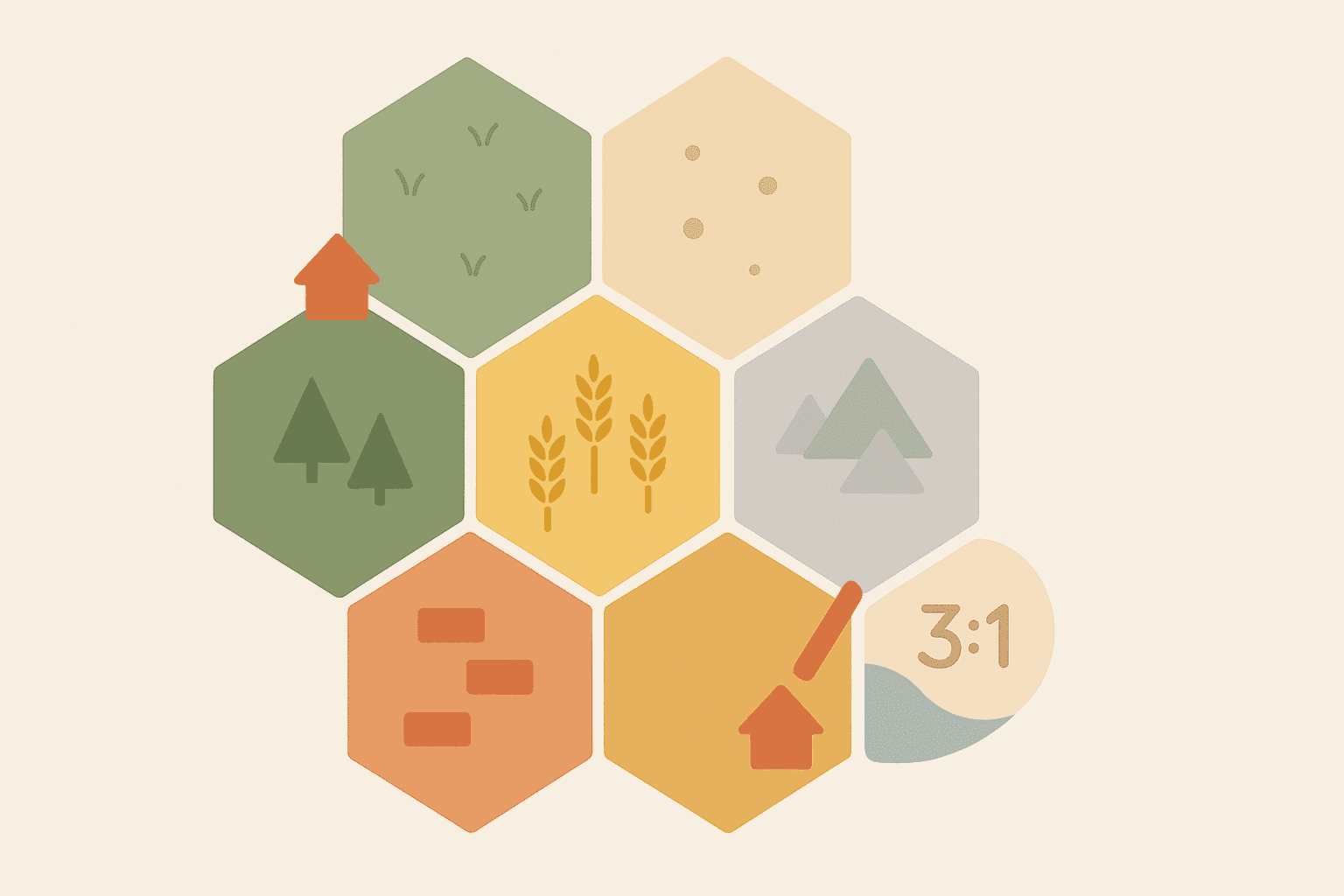
Catan Openings for New Players: Placement, Ports, Tempo
Openings decide your production, your expansion lanes, and how fast you turn resources into points. If you already know the basics of Catan, this guide gives you three beginner-friendly opening patterns and simple checklists for the first two placements, early road plans, and port timing.

Office-Friendly Party Games
Need a fast morale boost between meetings? These games are office-safe, quick to teach, and easy to scale. Each pick links to full rules on Playiro so you can start in under a minute. Browse more ideas on our curated party games.
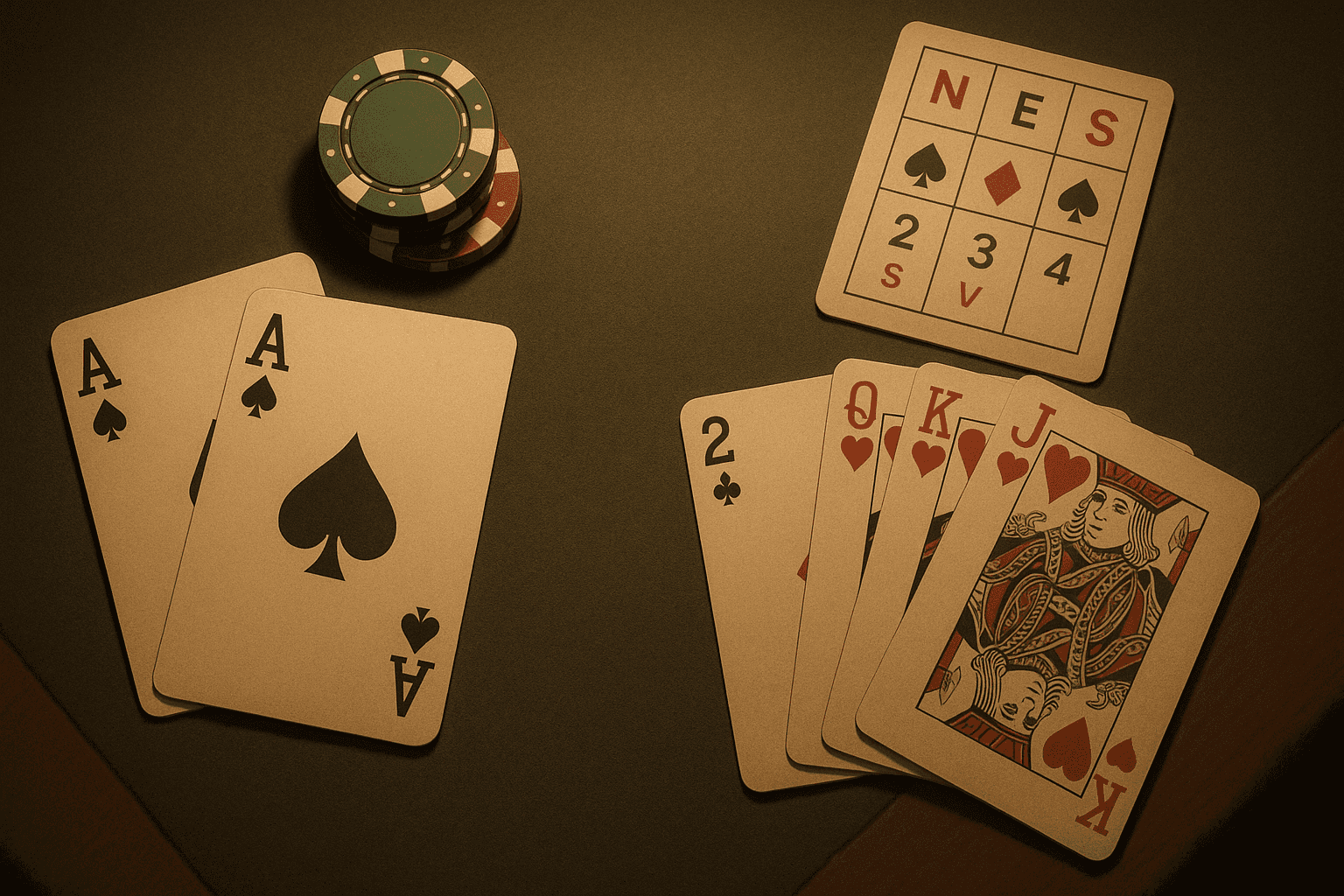
How Great Players Manage Risk - Lessons from Blackjack and Bridge
Every card game is built on risk. From a casual hand at home to a professional tournament, the outcome always depends on how players read uncertainty. Great players don’t try to eliminate risk - they manage it. Whether the goal is to outthink an opponent in Bridge or calculate the odds in Blackjack, mastery comes from understanding when to take a chance and when to hold back.
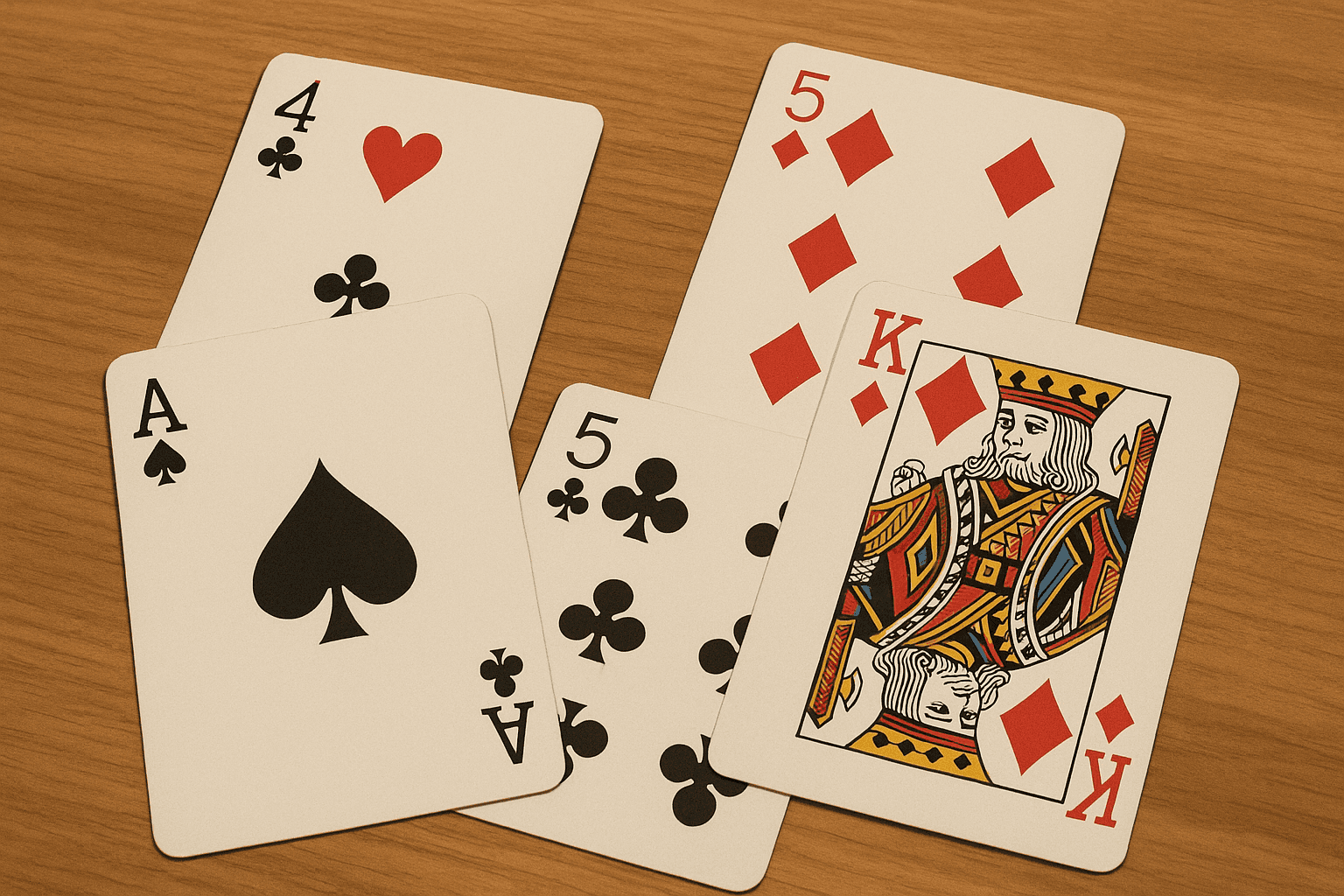
Symbols, Suits and Meaning – The Language of Cards
A deck of cards is more than a tool for gaming. It’s a pocket-sized record of human culture - an object that has carried meaning, symbolism and artistry for centuries. The four suits, the face cards and even the colors of red and black have evolved through time, blending myth, design and mathematics into a universal language. Each shuffle, draw and deal echoes hundreds of years of tradition.